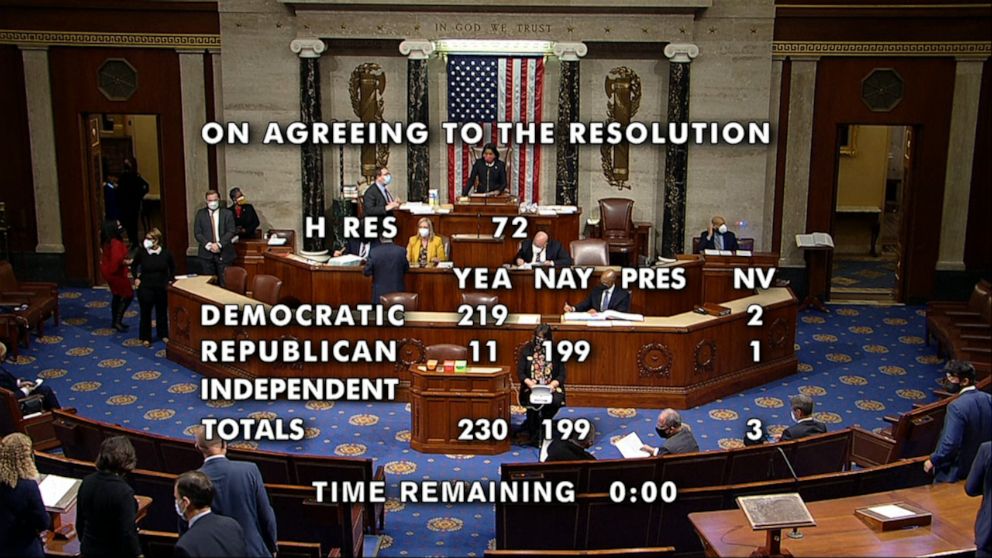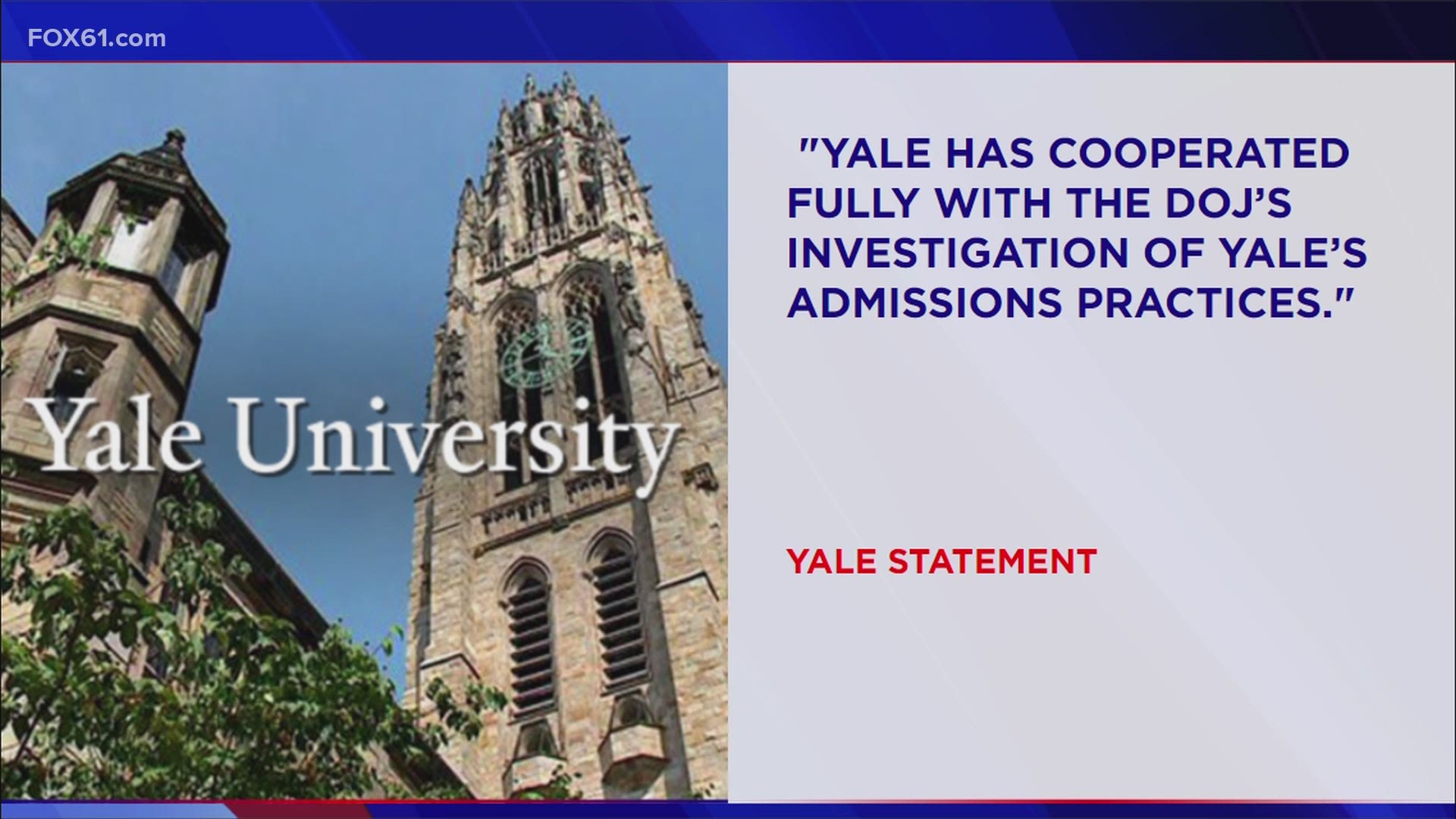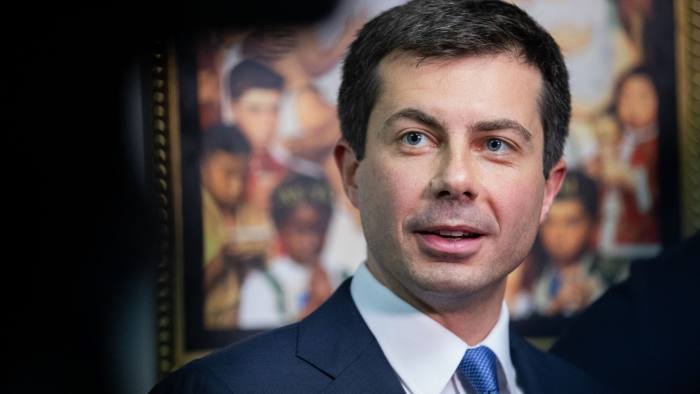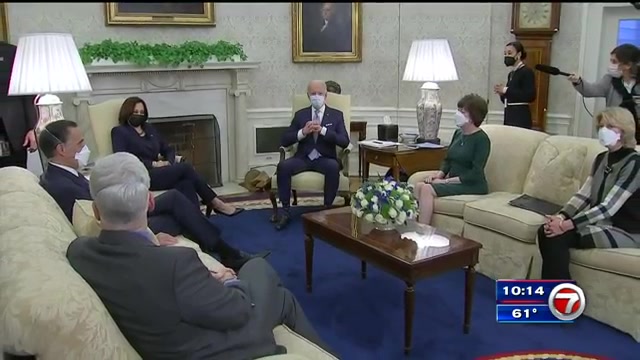
Dear Commons Community,
The House voted 230-199 yesterday to remove Rep. Marjorie Taylor Greene, R-Ga., from her committee assignments after Republican leadership failed to take action against the freshman congresswoman’s embrace of bizarre conspiracy theories and endorsement of violence against Democrats.
Eleven House Republicans broke ranks to join Democrats in voting to remove her from her committee assignments including:
- Adam Kinzinger of Illinois
- Brian Fitzpatrick of Pennsylvania
- John Katko of New York
- Fred Upton of Michigan
- Nicole Malliotakis of New York
- Carlos Gimenez of Florida
- Chris Jacobs of New York
- Young Kim of California
- Maria Elvira Salazar of Florida
- Chris Smith of New Jersey
- Mario Diaz-Balart of Florida
In a fiery speech on the House floor shortly before the vote, Majority Leader Steny Hoyer, D-Md., excoriated Republicans for ignoring Greene’s incendiary rhetoric. Hoyer displayed a poster showing one of Greene’s tweets that included an image of her with an AR-15 alongside Democratic Reps. Alexandria Ocasio-Cortez, Ilhan Omar and Rashida Tlaib above a banner that read “Squad’s Worst Nightmare.”
“They’re not ‘The Squad’ They’re Ilhan. They are Alexandria. And they’re Rashida. They are people. They are our colleagues,” Hoyer said. “This is an AR-15.”
Hoyer pointed out that two years ago House Republicans removed Rep. Steve King, R-Iowa, of his committee assignments after he questioned publicly why the phrase “white supremacy” was considered offensive. (King was defeated by a primary challenger later that year and is now out of Congress.)
As a rule, every member of Congress is assigned to one or more committees. For a freshman, especially one in the minority, committee meetings are one of the few ways to exercise power or make a mark in Congress.
Greene, who has supported the QAnon conspiracy theory in the past and has a long history of making racist comments, was elected to the House in November, and promptly announced she would introduce a bill on her first day to impeach President Biden. (It’s unclear whether any fellow members supported the proposal, which has no chance of passing the Democrat-controlled Congress.)
Last week, Facebook posts unearthed by CNN showed Greene had supported calls for violence against prominent Democrats, including House Speaker Nancy Pelosi. In one post, from January 2019, Greene liked a comment that said a “bullet to the head would be quicker” to remove the House speaker.
Greene, who was not in office at the time, has said her social media accounts were sometimes handled by others.
Posts on Greene’s Facebook account also expressed support for baseless conspiracy theories that the school shootings in Newtown, Conn., and Parkland, Fla., were staged. (“Exactly!” she wrote in response to a post saying the 2018 Parkland massacre was a “false flag planned shooting.”)
Fred Guttenberg, the father of a slain Parkland student, posted a video of Greene harassing David Hogg, a former Parkland student and gun reform advocate, outside the U.S. Capitol.
In a floor speech ahead of Thursday’s vote, Greene insisted her conspiratorial views — including her belief that the 9/11 attack on the Pentagon never happened — were a thing of the past.
“These were words of the past and these things do not represent me,” Greene said before blaming the media for distorting her views, equating the press corps to QAnon and casting herself as a victim of “cancel culture.” She did not offer an apology.
The unprecedented vote to remove Greene from her committee assignments came a day after House Minority Leader Kevin McCarthy, R-Calif., said that her past statements “on school shootings, political violence, and anti-Semitic conspiracy theories do not represent the values or beliefs of the House Republican Conference.” But he did not announce any sanctions, saying instead that she had assured him in a private conversation that she understood the need to meet “a higher standard” as a lawmaker than as a private citizen.
“I hold her to her word, as well as her actions going forward,” McCarthy said.
He also claimed he didn’t know what QAnon is, despite saying in August that there was no place for it in the Republican party.
McCarthy then criticized Democrats for “choosing to raise the temperature” in “their partisan power grab regarding the committee assignments of the other party.”
“It’s so unfortunate. You would think the Republican leadership would have some sense of responsibility to this institution,” House Speaker Nancy Pelosi said shortly before the vote.
In a Wednesday meeting with House Republicans, Greene attempted to distance herself from some of her past comments. She said that the school shootings were “real and awful,” and apologized for having subscribed to some QAnon conspiracy theories, according to attendees.
Those remarks satisfied McCarthy and her party colleagues, many of whom gave Greene a standing ovation.
But in an interview with the Washington Examiner published after her meeting with McCarthy, Greene seemed less contrite.
“And Kevin McCarthy and all these leaders, the leadership, and everyone is proving that they are all talk and not about action,” she said. “They’re just all about doing business as usual in Washington. And so what’s the difference between them and the Democrats? There isn’t a difference.”
Glad to see eleven Republicans with guts and the courage to put country before party. It is my hope that this will come back to haunt the other 199 Republicans who voted to keep her on the House committees.
Tony











